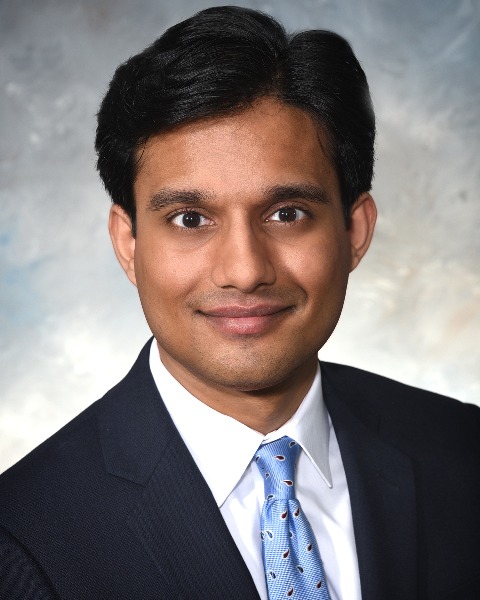Education/Quality/Wellness
Category: Scientific Abstract: Oral/Poster
Predictors of Academic Productivity in Cardiac Surgeons: Quality over Quantity
A. Chandrabhatla1, A. Narahari1, E. Fronk2, A. Singh2, K. Gray2, K. Qiu2, T. Vasiliadis2, J. Nguyen2, N. Teman2, J. Kern3, O. Preventza1, J. Hunter. Mehaffey4, M. Roeser1
1University of Virginia School of Medicine, Charlottesville, Virginia 2University of Virginia, Charlottesville, Virginia 3University of Virginia Health Center, Charlottesville, Virginia 4West Virginia University, Morgantown, West Virginia
1University of Virginia School of Medicine, Charlottesville, Virginia 2University of Virginia, Charlottesville, Virginia 3University of Virginia Health Center, Charlottesville, Virginia 4West Virginia University, Morgantown, West Virginia

Ani Chandrabhatla, BS
University of Virginia School of Medicine
Charlottesville, Virginia, United States
Presenting Author(s)
Disclosure(s):
Anirudha Chandrabhatla, BS: No financial relationships to disclose
Purpose: Building a successful academic career requires significant work and dedication. Currently, it is unclear how academic productivity as a trainee compares to early career accomplishments in impacting future academic success. We sought to identify predictors of academic success in cardiac surgeons with respect to research output and grant funding.
Methods: The top 140 National Institutes of Health (NIH) funded academic institution websites were queried for cardiac surgeon profiles. Publication records between 1970 and 2022 were obtained from Web of Science, a publisher-independent global research database that indexes more than 34,000 journals. The NIH iCite tool was queried to collect publications’ average citations per year. The NIH Research Portfolio Online Reporting Tools Expenditures and Results was queried with surgeon names to identify grants awarded since 1985. Information including grant type (e.g., F32, R01), start / end dates, and funding amount were collected for each grant. Multivariable linear and logistic regression were used to compare data. The primary outcomes were number of publications after five years as an attending and receiving a K08 or R01.
Results: We identified 972 academic cardiac surgeons (744 adult, 228 congenital) across 140 institutions with 71,842 publications and 2,506,010 citations. Since 1985, these surgeons were awarded 379 NIH grants with roughly $655 million in funding. In a multivariable time-adjusted linear model, total publications after five years as an attending were predicted by the number of publications during the first five years as an attending (p < 0.0001; parameter estimate [PE]1.30) and the citations per year of papers from the last five years of training (p = 0.004; PE 4.26), but not the number of publications from the last five years of training (p = 0.09; PE 0.50). In multivariable logistic regression, being awarded a K08 or R01 was predicted by the number of publications from the first five years as an attending (p = 0.0003; OR 1.02; 95% CI 1.01-1.04; Table) and whether the surgeon was awarded an F32 (p < 0.0001; OR 5.06; 95% CI 2.43-10.52), but not the number of publications from the last five years of training (p = 0.23; OR 1.02; 95% CI 0.99-1.04).
Conclusion: Research quality as a trainee (e.g., publishing highly cited work, receiving an F32), not quantity, predicts future academic productivity as an attending. Cardiac surgery trainees should prioritize learning how to conduct high-quality research and diligently apply those skills as an early attending to best position themselves for future academic success.
Identify the source of the funding for this research project: None
